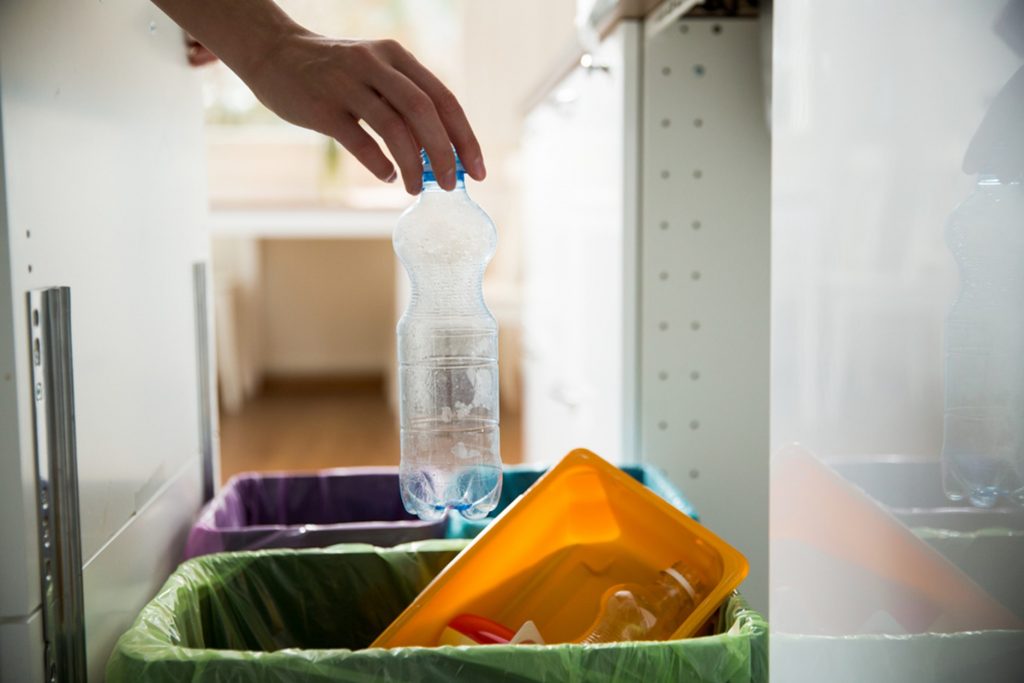Want to become more environmentally friendly? Helping Mother Earth isn’t the only benefit of going green. Using fewer resources and less energy can be as good for your savings as it is for the environment, so there are plenty of great reasons to switch to sustainable living.
These are just some of the ways you can go green in your home and workplace to save money.
1. Go Paperless
What do you spend on paper, printer ink, printer maintenance and postage annually? If you keep track of your finances via hard copies of documents, you may be incurring a small monthly fee from banks that charge for paper statements. Going paperless and using digital transactions is great for business sustainability, allowing you to minimise your stationery bill while reducing your carbon footprint.
2. Reduce Home Waste

There are many tips and tricks to make eco living easy. To keep your cleaning habits from harming the environment, try putting fewer chemicals down the toilet and sink. It’s possible to clean effectively with more natural cleaning solutions, such as white vinegar or bicarbonate of soda applied with water and a cloth.
Recycle food packaging by placing paper, tin, foil and cardboard in your home recycling bin. Avoid wasting food by buying less of it and try to eat everything in the fridge before resorting to takeaway.
3. Invest in Green Home Solutions
If you really want to cut energy costs over time, consider investing in green home solutions like solar power, energy-efficient lighting and smart meters. They’re an investment to install, but solar panels can make enough electricity for you to go completely off grid. If you’re looking for a cheaper green solution, energy-efficient light bulbs use less electricity and don’t need to be replaced as often as regular light bulbs.
It’s also important to identify the biggest energy guzzlers around your home or business. Home heating systems and boilers are usually among the worst culprits. Installing a smart meter is one of the best ways to reduce your electricity consumption, as this device can be programmed to switch your heater or airconditioner on at specific times.
4. Bring Your Own Shopping Bag

Single-use plastic bags have largely been removed from grocery stores, although it’s still possible to buy cheap reusable plastic bags. It may be convenient but purchasing plastic bags every time you go shopping is bad for your wallet and the environment.
Invest in some cloth bags and keep them in your car so they’re within easy reach each time you do your shopping. This will reduce the amount of plastic bags destined for landfill and leave you with more money in your pocket.
5. Use Rechargeable Batteries
Invest in a full set of rechargeable batteries for all your gadgets, remotes and smoke detectors. Rechargeable batteries can be charged up to 1,000 times, making them far more environmentally friendly than standard alkaline batteries. They also offer greater performance capacity, keeping your devices running for longer.
6. Shop Local

Small businesses contribute to a third of Australia’s economic activity. Shopping at fresh produce markets and farmers markets can help drive the local economy while reducing waste from store packaging.
It can also be cheaper to shop locally, as there may not be as many mark ups on produce. Local businesses are vital to our everyday lives, especially now that Australia’s economy is recovering in the wake of COVID-19.
7. Spend on Quality Over Quantity
According to the Australian Bureau of Statistics, Australians send an average of 23 kilos of textiles each to landfill annually. When it comes to clothing and household items, go for quality over quantity and buy with longevity in mind. For example, it’s better to buy a coffee maker that will last 5-10 years than to buy a cheap one that will break in a year.
It takes small changes and a little know-how to live a more sustainable life. By striving to adapt to an eco-friendly lifestyle, anyone can save money by going green. For more saving tips and money advice, discover additional articles on our blog.
Disclaimer: Please be aware that Cigno Loans’ articles do not replace advice from an accountant or financial advisor. All information provided is intended to be used as a guide only, as it does not take into account your personal financial situation or needs. If you require assistance, it is recommended that you consult a licensed financial or tax advisor.
